
Pai
WASHINGTON (Reuters) – The U.S. Federal Communications Commission voted along party lines on Thursday to repeal landmark 2015 rules aimed at ensuring a free and open internet, setting up a court fight over a move that could recast the digital landscape.
The approval of FCC Chairman Ajit Pai’s proposal marked a victory for internet service providers like AT&T Inc, Comcast Corp and Verizon Communications Inc and hands them power over what content consumers can access.
Democrats, Hollywood and companies like Google parent Alphabet Inc and Facebook Inc had urged Pai, a Republican appointed by U.S. President Donald Trump, to keep the Obama-era rules barring service providers from blocking, slowing access to or charging more for certain content.
Consumer advocates and trade groups representing content providers have planned a legal challenge aimed at preserving those rules.
The meeting was evacuated before the vote for about 10 minutes due to an unspecified security threat, and resumed after law enforcement with sniffer dogs checked the room.
New York Attorney General Eric Schneiderman, a Democrat, said in a statement he will lead a multi-state lawsuit to challenge the reversal. He called the vote “a blow to New York consumers, and to everyone who cares about a free and open internet.”
FCC Commissioner Mignon Clyburn, a Democrat, said in the run-up to the vote that Republicans were “handing the keys to the Internet” to a “handful of multi-billion dollar corporations.”
Shares of Alphabet, Apple Inc and Microsoft Corp moved lower after the vote.
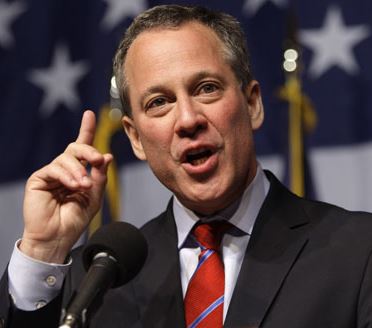
Schneiderman
Pai has argued that the 2015 rules were heavy handed and stifled competition and innovation among service providers.
“The internet wasn’t broken in 2015. We weren’t living in a digital dystopia. To the contrary, the internet is perhaps the one thing in American society we can all agree has been a stunning success,” he said on Thursday.
The FCC voted 3-2 to repeal the rules.
NEXT STEPS
Consumers are unlikely to see immediate changes resulting from the rule change, but smaller startups worry the lack of restrictions could drive up costs or lead to their content being blocked.
Internet service providers say they will not block or throttle legal content but that they may engage in paid prioritization. They say consumers will see no change and argue that the largely unregulated internet functioned well in the two decades before the 2015 order.
Democrats have pointed to polls showing a repeal is deeply unpopular and say they will prevail in protecting the rules, either in the courts or in U.S. Congress.
FCC Commissioner Jessica Rosenworcel, a Democrat, said in a written dissent released on Thursday that the decision grants internet providers “extraordinary new power” from the FCC.
“They have the technical ability and business incentive to discriminate and manipulate your internet traffic. And now this agency gives them the legal green light to go ahead,” she said.
Several state attorneys general said before the vote they would work to oppose the ruling, citing problems with comments made to the FCC during the public comment period. Other critics have said they will consider challenging what they consider to be weaker enforcement.
Net neutrality supporters had rallied in front of the FCC building in Washington before the vote.
 The 2015 rules were intended to give consumers equal access to web content and prevent broadband providers from favoring their own content. Pai proposes allowing those practices as long as they are disclosed.
The 2015 rules were intended to give consumers equal access to web content and prevent broadband providers from favoring their own content. Pai proposes allowing those practices as long as they are disclosed.
Michael Powell, a former FCC chairman who heads a trade group representing major cable companies and broadcasters, told reporters earlier this week that internet providers would not block content because it would not make economic sense.
“They make a lot of money on an open internet,” Powell said, adding it is “much more profitable” than a closed system. “This is not a pledge of good-heartedness, it’s a pledge in the shareholders’ interest.”
The chief executive of USTelecom, a lobbying group that represents internet providers and the broadband industry, said in a statement the industry has “renewed confidence to make the investments required to strengthen the nation’s networks and close the digital divide, especially in rural communities.”
A University of Maryland poll released this week found that more than 80 percent of respondents opposed a repeal. The survey of 1,077 registered voters was conducted online by the Program for Public Consultation at the University of Maryland from Dec. 6-8.
Reporting by David Shepardson; Writing by Chris Sanders; Editing by Jonathan Oatis and Meredith Mazzilli


 Subscribe
Subscribe
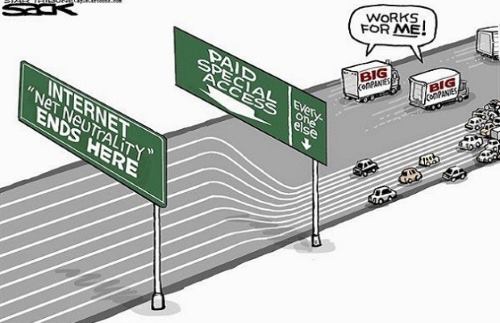 Pai said his proposal would prevent state and local governments from creating their own Net Neutrality rules because internet service is “inherently an interstate service.” The preemption is most likely to handcuff Democratic-governed states and localities that could have considered their own plans to protect consumers’ equal access to internet content.
Pai said his proposal would prevent state and local governments from creating their own Net Neutrality rules because internet service is “inherently an interstate service.” The preemption is most likely to handcuff Democratic-governed states and localities that could have considered their own plans to protect consumers’ equal access to internet content.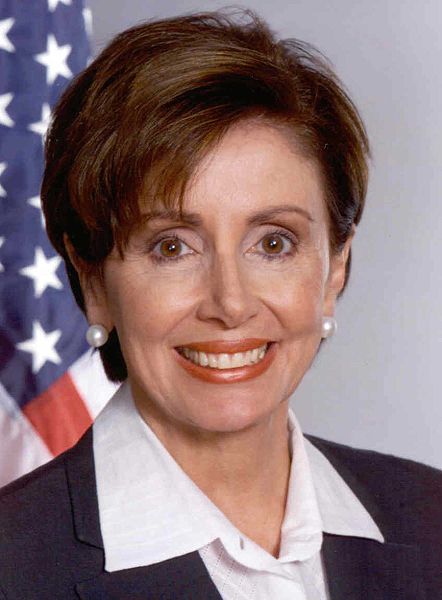
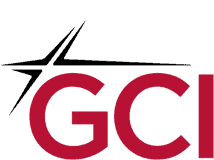 The Federal Communications Commission has quietly
The Federal Communications Commission has quietly 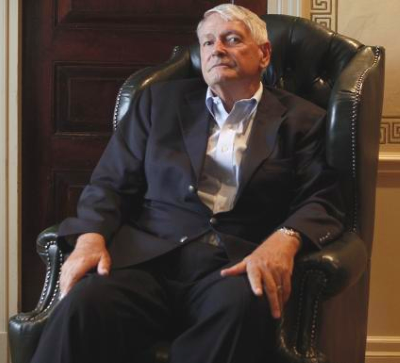

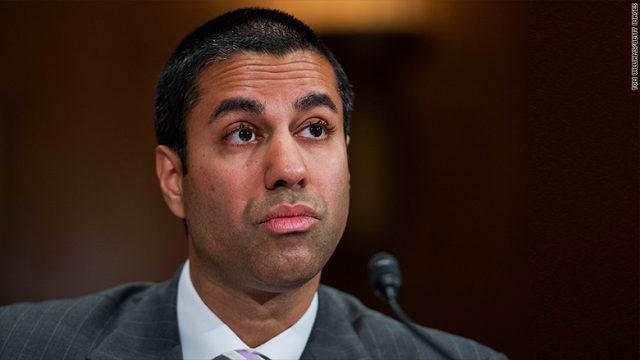
 Any move to challenge media companies’ licenses, however, would likely face significant hurdles.
Any move to challenge media companies’ licenses, however, would likely face significant hurdles.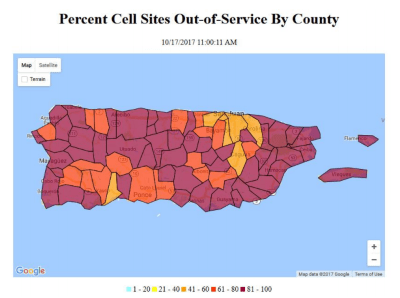 As Puerto Rico approaches the first month anniversary of Hurricane Maria, only small amounts of incremental progress have been made restoring the island’s telecommunications networks badly damaged by the storm.
As Puerto Rico approaches the first month anniversary of Hurricane Maria, only small amounts of incremental progress have been made restoring the island’s telecommunications networks badly damaged by the storm.

